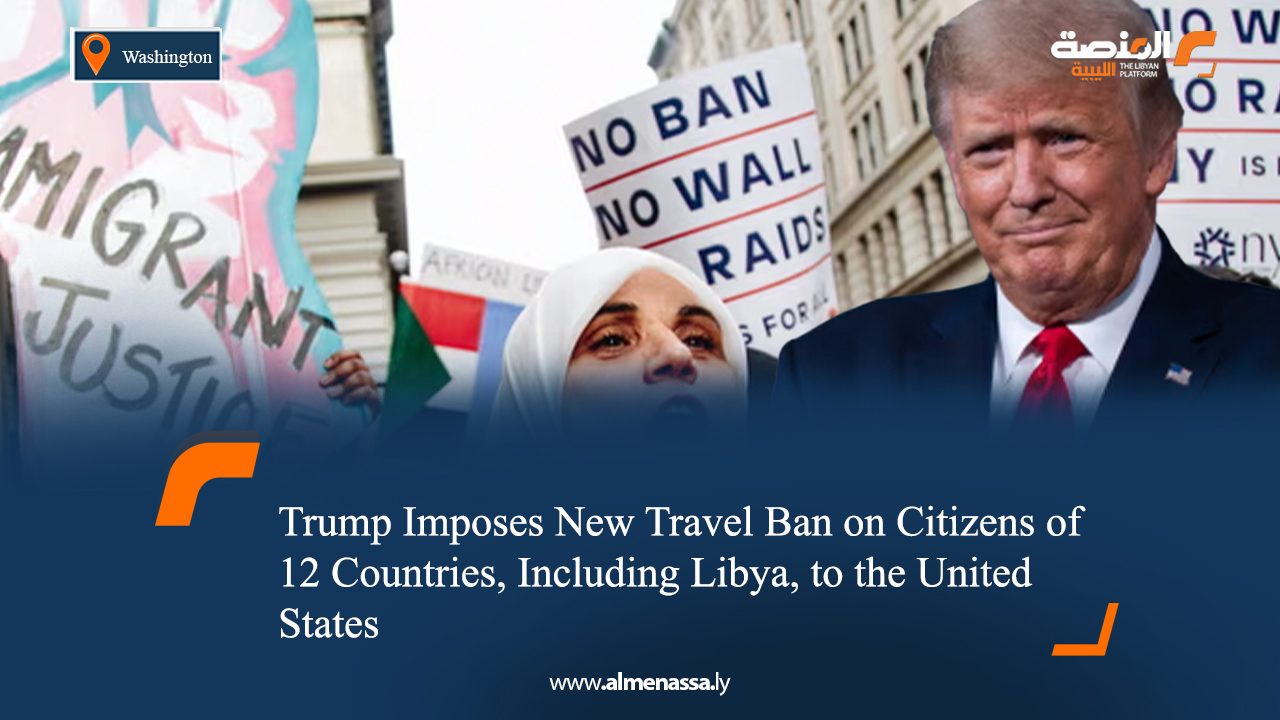The new travel ban announced by U.S. President Donald Trump came into effect at midnight Eastern Coast time on Monday, fully prohibiting entry for citizens of 12 countries to the United States and partially restricting citizens of 7 other countries. This move has sparked widespread controversy on both political and human rights levels.
The full ban applies to citizens of Afghanistan, Myanmar, Chad, Congo, Equatorial Guinea, Eritrea, Haiti, Iran, Libya, Somalia, Sudan, and Yemen. Partial restrictions were imposed on citizens of Burundi, Cuba, Laos, Sierra Leone, Togo, Turkmenistan, and Venezuela.
This decision is considered one of Trump’s most prominent policies in his second term and represents, according to observers, a new attempt to reshape U.S. immigration policy more stringently. The ban comes more than eight years after Trump’s first ban in 2017, which then targeted seven Muslim-majority countries and was met with widespread criticism and protests.
Unlike the previous decision, which was described as a “Muslim ban,” the new ban is broader in scope and includes countries from multiple religious and ethnic backgrounds. However, human rights organizations have deemed the decision still to have a discriminatory character, as it targets people from non-white countries, mostly from the Global South.
For her part, Abby Maxman, President of Oxfam America, stated, “This policy is not about national security; it’s about sowing division and distorting communities seeking safety in the United States.”
Legal experts believe that the new ban is more likely to withstand judicial challenges due to its broad phrasing and reliance on national security justifications, such as weak vetting procedures in some countries, the presence of terrorist activity, or high rates of visa overstay violations.
At the same time, the decision has caused concern among many citizens of the affected countries who fear losing educational or work opportunities or reuniting with their families. Political analyst Mikhail Nyamoya explained that the new ban “reinforces a pattern of exclusion” and entrenches the perception of Africans and other peoples of the Global South as outsiders in the global system.
U.S. directives indicate that the ban does not revoke previously issued visas but prevents the issuance of new visas for citizens of banned countries, unless they meet exemption conditions.
Trump justified his decision by stating that some of the included countries lack reliable mechanisms for verifying traveler identities or have previously refused to repatriate their citizens, in addition to claims of potential links to terrorism. In a video clip, Trump linked the ban to a recent attack in Boulder, Colorado, even though the suspect is from a country not covered by the ban.
With the decision entering into force, a spokesperson for Houston Airport stated that the ban would not affect incoming flight traffic to the airport, as there are no direct flights with the targeted countries.
It is worth noting that a previous draft of the ban plan had included 43 countries, but the final decision included only 19, with varying degrees of restrictions.


